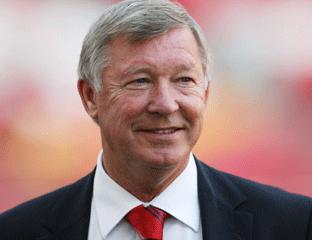All-Time Premier League Football Statistics 1992-93 to 2017-18
The League ladders season by season also showing the total points won and promoted clubs.
Stats of the points amassed season by season
for every club in the Premier League
from 1992-93 to 2016-17
Player's Appearence figures for all 2,992 football players who have made at least one Premier League appearance during the last 19 seasons
Stats of the Premier League's top five clubs for every season from 1992-93 to 2016-17, together with highest finishes for all 47 clubs.
All-Time Top 100 Premier League goalscorers
from Season 1992-93 to 2017-18.
PREMIER LEAGUE
Despite significant European success during the 1970s, the 1980s had marked a low point for English football. Stadiums were crumbling, supporters endured poor facilities, hooliganism was rife, and English clubs were banned from European competition following the events at Heysel in 1985. The Football League First Division, which had been the top level of English football since 1888, was well behind leagues such as Italy's Serie A and Spain's La Liga in attendances and revenues, and several top English players had moved abroad. However, by the turn of the 1990s the downward trend was starting to reverse; England had been successful in the 1990 FIFA World Cup, reaching the semi-finals.
UEFA, European football's governing body, lifted the five-year ban on English clubs playing in European competitions in 1990. The Taylor Report on stadium safety standards, which proposed expensive upgrades to create all-seater stadiums in the aftermath of the Hillsborough disaster, was published in January of that year.
Television money had also become much more important; the Football League received £6.3 million for a two-year agreement in 1986, but when that deal was renewed in 1988, the price rose to £44m over four years. The 1988 negotiations were the first signs of a breakaway league; ten clubs threatened to leave and form a "super league", but were eventually persuaded to stay. As stadiums improved and match attendance and revenues rose, the country's top teams again considered leaving the Football League in order to capitalise on the growing influx of money being pumped into the sport. At the close of the 1991 season, a proposal for the establishment of a new league was tabled that would bring more money into the game overall.
The Founder Members Agreement, signed on 17 July 1991 by the game's top-flight clubs, established the basic principles for setting up the FA Premier League. The newly formed top division would have commercial independence from the Football Association and the Football League, giving the FA Premier League license to negotiate its own broadcast and sponsorship agreements. This was considered necessary so that English clubs could once again compete with and beat the best of Europe, while attracting the best talent in the world, something which in 1991 seemed practically unthinkable. In 1992 the First Division clubs resigned from the Football League en masse and on 27 May 1992 the FA Premier League was formed as a limited company working out of an office at the Football Association's then headquarters in Lancaster Gate.
This meant a break-up of the 104-year-old Football League that had operated until then with four divisions; the Premier League would operate with a single division and the Football League with three.There was no change in competition format; the same number of teams competed in the top flight, and promotion and relegation between the Premier League and the new First Division remained on the same terms as between the old First and Second Divisions. The number of clubs in the Premier League decreased from 22 in 1992-93 to just 20 three seasons later. It has remained at 20 clubs since season 1995-96.
Only five of those 40 clubs have won the Premier League title - Manchester United, Chelsea, Arsenal, Blackburn & manchester City. The 2009-10 Premier League title was won by Chelsea by one point from Manchester United. Chelsea's goals scored total of 103 was the highest in the Top Flight of English Football since the Tottenham Hotspur 'double-winning' team of 1960-61.
Arsenal finished in third place with Tottenham Hotspur recording their first Top Four finish of the Premier League Era to qualify for the UEFA Champions League after a gap of 49 years away from Europe's elite competition.
A new regulation introduced for the 2010-11 season is that every Premier League club must name a maximum squad of 25 players and these, together with an unlimited number of players 21 years old or younger, will be the only ones allowed to participate until the January 2011 transfer window. Premier League founder members Queens Park Rangers and Norwich City returned to the competition for season 2011-12 and were joined by Swansea City, who became the 46th club to participate and the first from Wales.
Cardiff City bercame the second Welsh club to reach the Premier League in 2013-14 but they were relegated at the end of the season.
Premier League betting is very popular: make your football bets at titanbet.com
All 2,014 foreign players from 106 countries
who have participated in the Premier League
for the last 26 seasons
Stats of the 459 Premier League Winners
Medals awarded to 236 different players from
season 1992-93 to 2016-17
Stats of the 2,014 foreign Premier League
players by the 49 clubs they played for and
the 106 different countries they represented
Cumulative record of all match results, points and goals of every team that has played in the Premier League from 1992-93 to 2017-18
Historical & current stats of every red & yellow
card issued to clubs in the Premier League
from 1992-93 to 2014-15
Historical stats of every red & yellow card
issued to players in the Premier League
from 1992-93 to 2010-11
Table showing the results of every
Premier League match played from
1st January to 31st December 2009
Statistics for the number of goals scored in every Premier League season from 1992-93 to 2017-18
Premier League Manager of the Month Award
from August 1993 to April 2018
Premier League Player of the Month Award
from August 1994 to April 2018
Premier League Manager of the Year Award
from season 1993-94 to 2016-17
Every major Domestic and European trophy won during the Premier League Era from season
1992-93 to 2017-18
Search My Football Facts & Stats
Details of every hat-trick scored in the Premier League from 1992-93 to 2017-18
Complete record of every Premier League
penalty from season 1992-93 to 2017-18
Every Premier League club which has qualified
for UEFAs European Competitions from season 1992-93 to 2017-18
Table showing every Premier League manager
from season 1992-93 to 2017-18.
All 2,988 football players who have made at least one PL appearance from 1992-2011, with goals scored, strike rate, assists, total combined goals & assists, yellow & red cards
Complete record of every Premier League
shirt sponsor for all 49 teams from
season 1992-93 to 2017-18
Premier League statistics are split between three sections. This section contains All-Time statistics pages from
1992-93 to 2016-17, while statistics relating to each individual season can be found by clicking this link:
Individual records and statistics for the 47 individual football clubs which have participated in the
Premier League from season 1992-93 to 2016-17, including player squad numbers, all-time player appearances,
all-time goalscorers and club Player of the Year Awards can be found by clicking on the link below...
The latest available financial figures for all 20 Premier League clubs, including gross turnover, player's wages, debt and wages to turnover ratio
Table of the all-time record goalscorers for all 49 clubs which have participated in the
Premier League from 1992-93 to 2017-18
Table of the all-time record appearances for all 47 clubs which have participated in the
Premier League from season 1992-93 to 2016-17.
Player's squad numbers were first introduced for the 1993-94 Premier League season.
Click on any of the 49 clubs shown below for their complete Premier League squad numbers player histories...
AFC Bournemouth Arsenal Aston Villa Barnsley Birmingham City Blackburn Rovers Blackpool Bolton Wanderers
Bradford City Burnley Cardiff City Charlton Athletic Chelsea Coventry City Crystal Palace Derby County Everton Fulham
Hull City Ipswich Town Leeds United Leicester City Liverpool Manchester City Manchester United Middlesbrough
Complete details of every player who has made
300 hundred or more Premier League
appearances up to the end of 2017-18
Table detailing the Football Writer's Association
and Professional Football Association Player
of the Year Awards with PFA Young Player of
the Year, European & World Players of the Years.
Stats of every highest goalscoer in the Top Flight
of English Football from 1888-89 to 2016-17
Web site designed & hosted by Paul Yarden © 2017 at Homestead™
Article examining the rise of Airline Sponsorship in the Premier League and around the World










